I agree Our site saves small pieces of text information (cookies) on your device in order to deliver better content and for statistical purposes. You can disable the usage of cookies by changing the settings of your browser. By browsing our website without changing the browser settings you grant us permission to store that information on your device.
Last updated on 26 October 2023
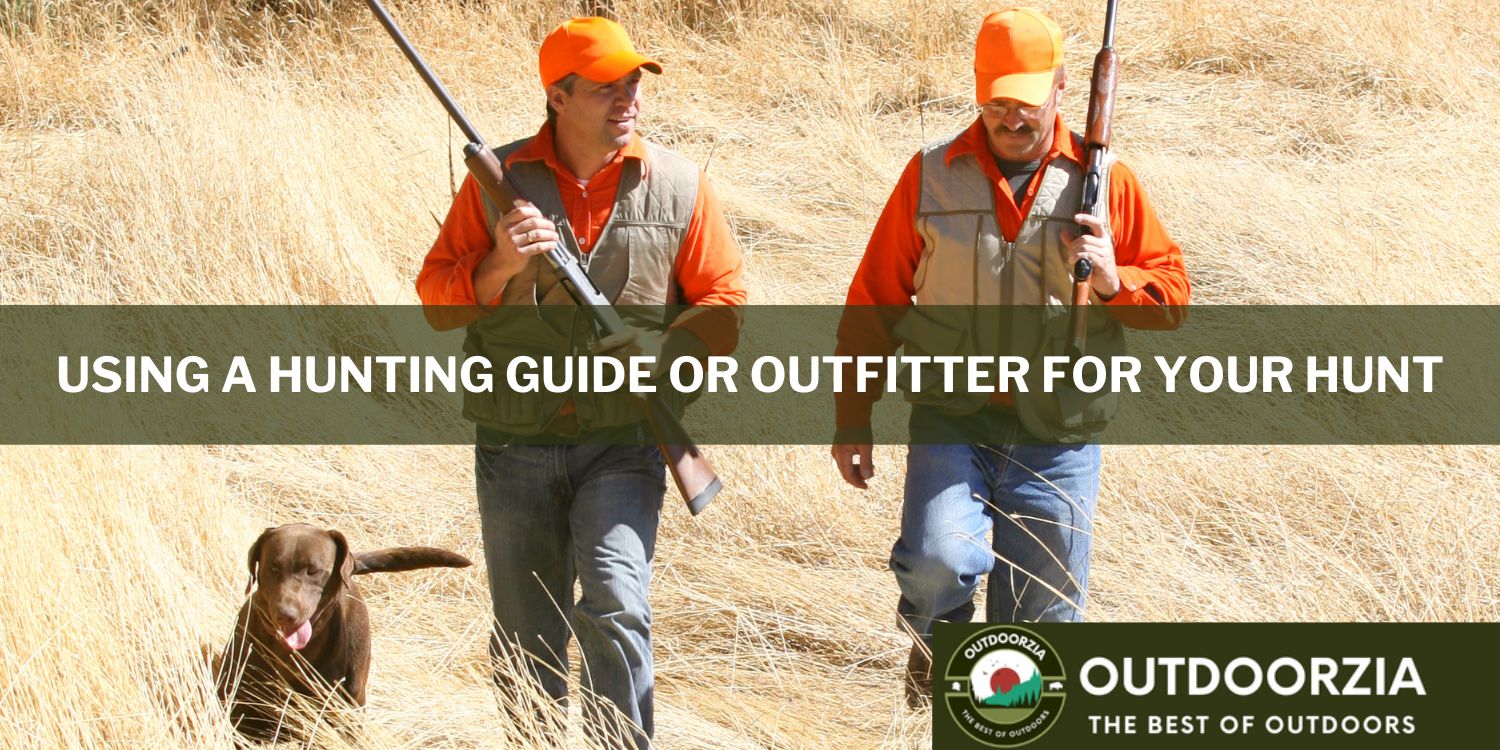
A hunting trip refers to an organized excursion where individuals or groups venture into natural environments with the primary goal of pursuing and capturing or killing wild game. These trips can vary in duration, from short single day outings to extended journeys spanning several days or even weeks. The hunt's success is typically gauged by the game secured, though many also value the experience and connection with nature. The success of a hunt can be amplified by the using the services of a hunting guide or an outfitter.
A hunting guide is an individual with extensive knowledge and experience. This is normally in hunting a specific game species or in a certain region. It is not uncommon for a guide to have hunted in the area their whole life. The guide assists hunters during their trips, ensuring they navigate terrains safely and adhere to local hunting regulations. They often have expertise in tracking and an amazing understanding of the local wildlife. This provides hunters with a higher likelihood of a successful outing.
Whereas, a hunting outfitter is a business or individual who provides equipment, supplies, and often logistical support for hunting expeditions. This can include offering guided services, securing hunting licenses, providing accommodations, transportation and any gear required for the hunt.
Below we will look at the roles hunting guides and outfitters play in more detail and show how they can vastly enhance the hunting experience.
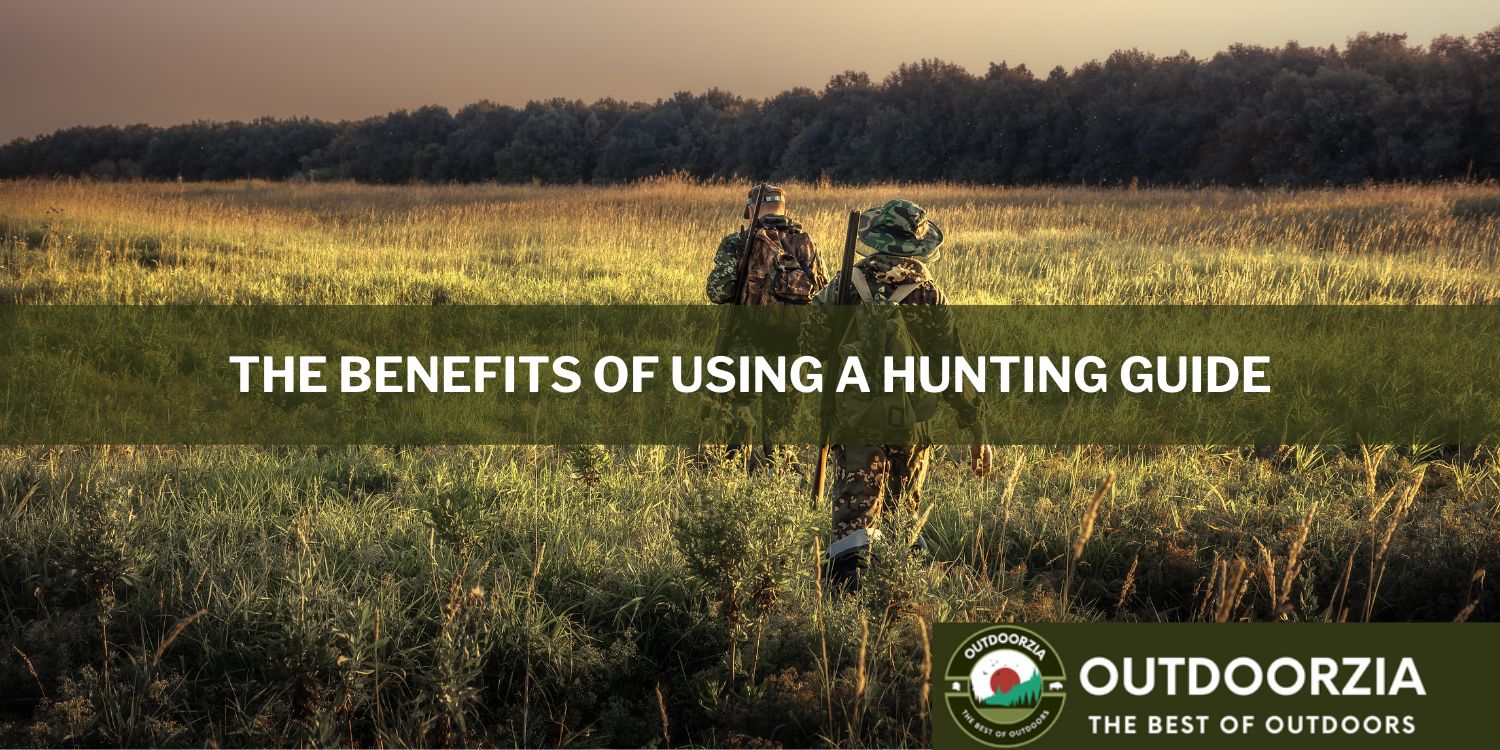
A hunting guide is a skilled and knowledgeable professional who assists hunters in their expeditions, providing expertise and guidance. They possess comprehensive knowledge of hunting techniques, local wildlife, and hunting regulations, allowing them to effectively navigate hunting areas and locate game. Hunting guides play a vital role in improving the chances of a safe and successful hunt. Guides can also help hunters field dress game. Their assistance often extends to transporting harvested game and processing the meat. This can be particularly beneficial for the novice hunter.
A good hunting guide possesses a combination of key qualities. They should have extensive knowledge of the local ecosystem, including the behavior and habitats of the target game species. Their communication and interpersonal skills should be excellent. This is crucial as guides must effectively communicate instructions, safety guidelines, and hunting strategies to their clients. Additionally, patience, adaptability, and a strong work ethic are essential qualities. This enables hunting guides to handle unpredictable situations, maintain professionalism, and ensure a positive hunting expedition for their clients.
Hunting guides have various responsibilities. They are responsible for scouting hunting areas, tracking game, and identifying prime locations for hunting. Guides must possess first aid and emergency response skills to address any injuries or medical situations which may arise. Additionally, they educate hunters about hunting regulations, ethical practices, and safety protocols. They must ensure compliance with legal requirements and ethical standards throughout the hunt.
While success in hunting can never be guaranteed, in most instances a guided hunt does have a higher probability of success. Hunting guides bring valuable knowledge, experience, and techniques to the hunt. This increases the chances of locating game and optimizing hunting opportunities. Their understanding of the local terrain, animal behavior, and hunting strategies can significantly enhance the overall success rate of the hunt.
Obtaining the job of a hunting guide typically involves a combination of practical experience and specialized training. Then obtaining necessary licenses and certifications. Many hunting guides start as avid hunters, developing their skills and knowledge through personal hunting experiences. Some may pursue formal education or certification programs related to wildlife management, guiding, or outdoor recreation. Gaining practical experience as an assistant guide or working with experienced professionals in the field is also common, allowing individuals to learn and refine their guiding skills over time.
The salary of a hunting guide can vary depending on factors such as location, experience, clientele, and the type of hunts they specialize in. Compensation can range from a daily rate or an hourly wage to a percentage of the hunt fees charged by outfitters. Some hunting guides operate independently and may set their own rates, while others work for hunting outfitters or guiding services. Salaries can range from moderate to higher incomes, with experienced and successful guides often earning more due to their reputation and client demand.
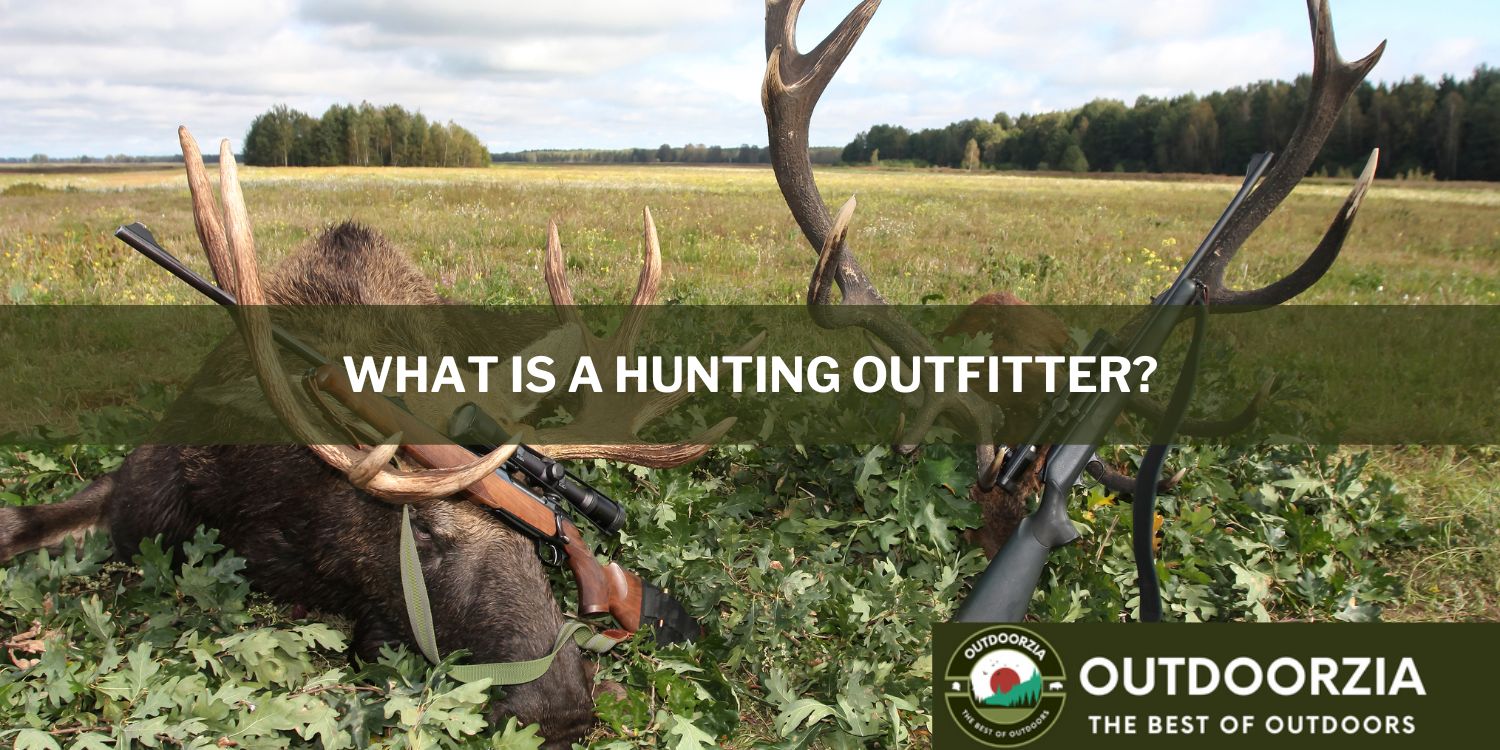
When embarking on a hunting expedition, the decision to use a hunting guide can greatly enhance the overall experience and increase the chances of a successful hunt. The benefits of utilizing a hunting guide range from improved success rates and expert guidance to enhanced safety, local knowledge, and personalized experiences.
Utilizing a hunting guide significantly increases the likelihood of a successful hunt. Their knowledge of local wildlife, hunting techniques, and prime hunting areas gives hunters a distinct advantage. This is especially true when hunting in a new location as it saves hunters having to learn about the terrain and game species behavior in the area.
Hunting guides provide invaluable guidance and instruction, particularly for novice or less-experienced hunters. They offer insights on hunting strategies, equipment usage, and field craft. This helps hunters improve their skills and make informed decisions throughout the hunt.
Hunting guides prioritize safety and are trained in emergency response procedures, increasing the chances of a safe hunting experience. They are well-versed in handling firearms, navigating treacherous terrains, and managing potential risks. This reduces the chances of hunters having accidents or encountering dangerous situations.
Hunting guides possess intimate knowledge of the local ecosystem, including animal behavior, migration patterns, and terrain. This expertise allows them to lead hunters to the most promising hunting areas, optimizing their chances of encountering game. This increases the overall quality of the hunt which in turn maximizes enjoyment.
Hunting guides offer valuable educational opportunities, sharing their knowledge of wildlife conservation, ethical hunting practices, and the natural environment. Hunters can gain insights into the ecological balance, wildlife habits, and the importance of conservation efforts. This can provide hunters with a deeper appreciation for both the sport and the environment.
Hunting guides often tailor their services to meet the specific needs and preferences of hunters. They can accommodate various hunting styles, skill levels, and desired game species. This allows personalized experiences which align with individual interests and goals.
Engaging the services of a hunting guide can transform a hunting trip into a memorable adventure. Their expertise, storytelling, and passion for the sport enhance the overall experience. Guides can create lasting memories of camaraderie, exciting pursuits, and the beauty of the natural world.
Hunting guides handle logistical aspects such as scouting, permits, and equipment. This saves hunters considerable time and effort. They ensure all the necessary arrangements are in place, so hunters can focus on the hunt itself and enjoy a hassle-free experience.
Hunting guides often have extensive networks and connections within the hunting community. This can provide access to additional opportunities. This can include private hunting ranches, exclusive hunting clubs, or partnerships with reputable outfitters, enhancing the overall hunting experience.
Hunting guides may share their knowledge of local culture, history, and traditions. This will enrich the hunting experience with a deeper understanding of the region's heritage and connection to the land.
On average, hunting guides can cost anywhere from $200 to $700 or more per day. The cost of hiring a hunting guide can vary depending on factors such as; the location, duration of the hunt, the level of expertise, and the services provided. Some guides may charge a flat fee for the entire hunt. This can range from a few thousand dollars to tens of thousands of dollars. This is particularly true for specialized hunts or premium hunting destinations. It's important to inquire about the specific pricing structure and services included before hiring a hunting guide.
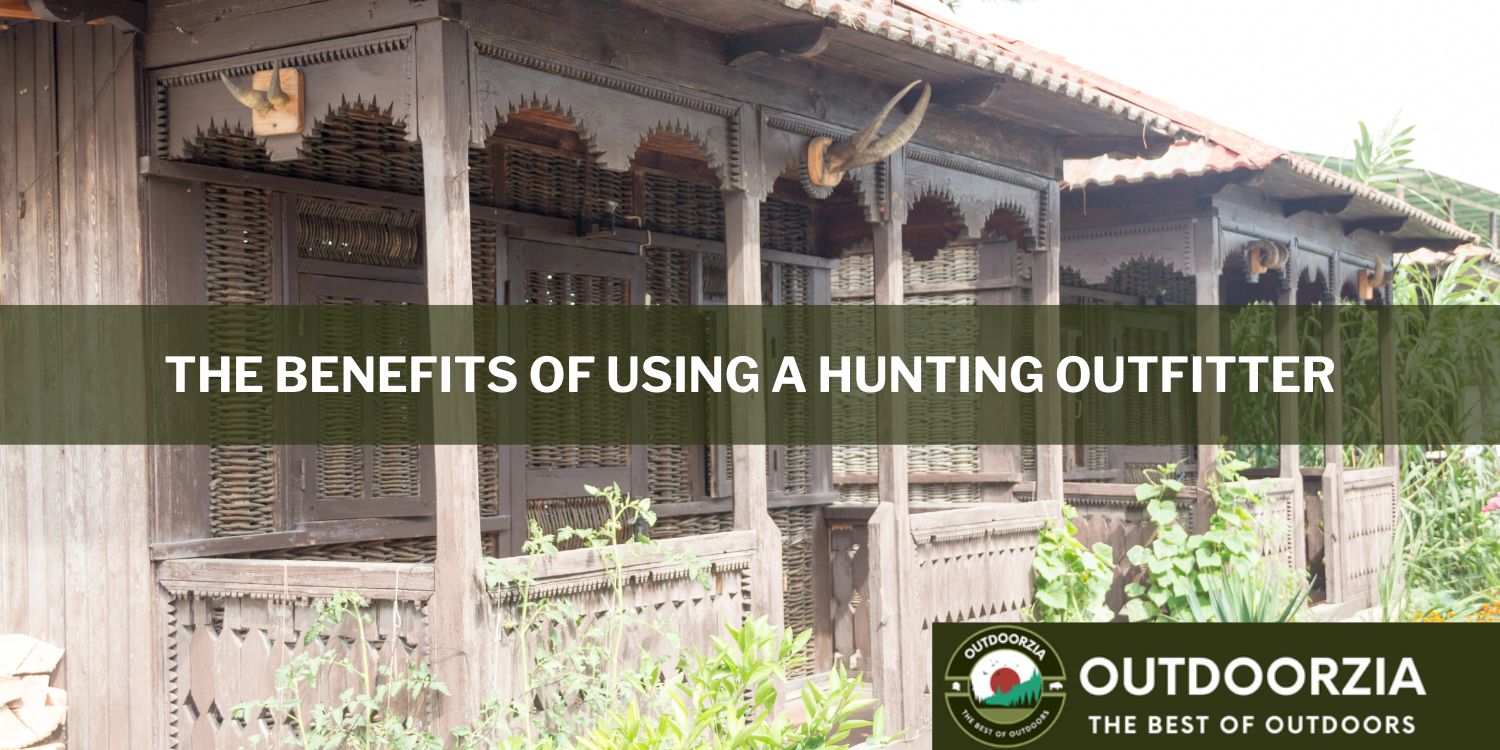
A hunting outfitter is a business or organization which provides comprehensive hunting services and arrangements to hunters. They may also arrange fishing trips alongside their hunting services. They play a crucial role in the hunting industry, organizing and facilitating trips. Outfitters provide a range of services including lodging, transportation, access to hunting areas, equipment, and sometimes even guides. Hunting outfitters aim to ensure hunters have a well-organized, enjoyable, and successful hunt.
Hunting outfitters offer a variety of services to support hunters during their trips. These services may include arranging accommodations such as lodges or cabins, providing transportation to and from hunting areas, and granting access to private hunting lands or leased territories. They may also supply hunting equipment, licenses, permits, and game processing facilities. Additionally, some outfitters offer the option of hiring experienced hunting guides to accompany hunters during their expeditions.
When selecting a hunting outfitter, it is important to consider factors such as their reputation, experience, customer reviews, and the specific hunting opportunities they provide. Researching outfitters and seeking recommendations from fellow hunters or hunting associations can help identify the best options. You can conduct your own research by evaluating the services, accommodations and hunting locations provided by an outfitter. Combining your own research, taking into account customer reviews, then analysing how this fits in with your personal objectives will give you the best chance of finding the outfitter right for you. For further clarity you can contact outfitters you are thinking about using and ask them some questions.
When selecting a hunting outfitter, asking specific questions can provide valuable insights into their services and offerings. You can ask about; the availability and quality of hunting opportunities, the size and condition of the hunting areas, the success rates of previous hunters, and the specific species or game available for hunting.
It is also important to discuss pricing, deposits, refund policies, and any additional fees for services or amenities. It is also advised to ask about their safety protocols, licenses, and affiliations with hunting associations.
Hunting outfitters often increase the chances of a successful hunt. This is due to outfitters providing access to prime hunting locations, offering insights into local wildlife behavior, and arranging services such as hunting guides. Outfitters possess a thorough understanding of the hunting areas, which increases the likelihood of encountering game and optimizes hunting opportunities. Additionally, outfitters often have established relationships with landowners, allowing hunters access to private ranches or land which often have higher game populations.
To become a hunting outfitter you need a combination of business management skills, local wildlife knowledge and experience in hunting and outdoor recreation. Outfitters may start as hunting enthusiasts, gaining experience through personal hunting expeditions and gradually transitioning into organizing hunting trips for others. It is important an outfitter has a knowledge of; hunting regulations and how to acquire necessary licenses and permits. They are also required to be adapt at building relationships with landowners and local communities in order to maximize the hunting opportunities available to their clients.
Smaller outfitters or those operating in less sought-after hunting areas may earn around $30,000 to $50,000 per year. Established outfitters with access to prime hunting locations and a strong client base can potentially earn in excess of $100,000 per year. The main factors which impact outfitters earnings are; location, the scale of operations, clientele, and the services provided.
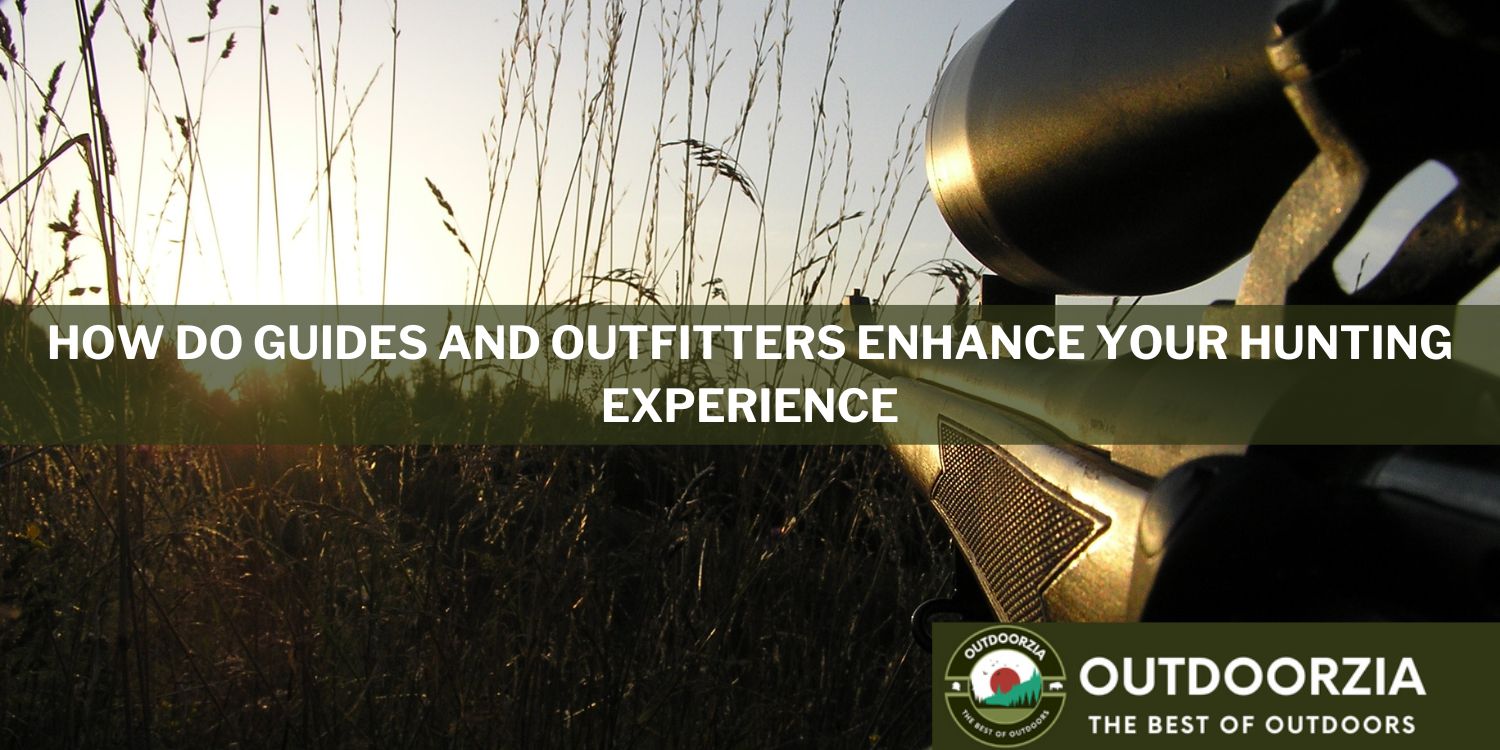
Engaging with a hunting outfitter provides numerous advantages. They can transform an ordinary hunting trip into an exceptional experience. These professionals offer an amalgamation of access, expertise, and logistical solutions, ensuring hunters not only have a higher chance of success but also a richer understanding of the ecosystem and sport.
Hunting outfitters provide access to well-managed private lands, exclusive leases and coveted hunting territories. These areas often have high game populations, increasing the chances of encountering quality game animals. This can be an especially beneficial if you intend on hunting elk or moose in locations where obtaining a hunting license is notoriously difficult.
Outfitters often employ experienced hunting guides or staff members who possess extensive knowledge of the local ecosystem, wildlife behavior, and hunting techniques. Their expertise improves success rates, and make the overall experience more enjoyable for hunters.
Hunting outfitters handle the logistical aspects of hunting trips. This includes arranging accommodations, transportation, licenses, permits, and equipment. They take care of these details which are often found to be time consuming and tedious. This helps provide hunters with a smoother more enjoyable hunting expedition..
Outfitters prioritize safety, they follow strict adherence to hunting regulations and ethical practices. They have protocols in place for emergency situations. Outfitters also provide guidance on firearm safety, navigating challenging terrain, and managing potential risks.
Outfitters significantly enhance the probability of a successful hunt. They do this by providing access to prime hunting areas, employing knowledgeable guides, and implementing effective hunting strategies. This combined with a deep understanding of local wildlife patterns provides increased chances of successfully harvesting game.
Hunting outfitters often share their knowledge of hunting techniques, wildlife conservation and the natural environment. This can provide hunters with new techniques and strategies to add to their hunting toolset. Outfitters can also help hunters develop a deeper appreciation for the sport and increase their awareness of wildlife conservation.
Joining a hunting trip organized by an outfitter allows hunters to connect with fellow enthusiasts. This can help open new horizons as they can share experiences, and develop their network within the hunting community. It also presents an opportunity to make friends with like-minded individuals as they participate in a shared passion for hunting and the outdoors.
Outfitters can customize hunting trips to suit individual preferences. This can be targeting specific game species, accommodating different hunting styles, or catering to varying skill levels. They work closely with hunters to curate personalized experiences which align with their interests and goals.
Many outfitters prioritize sustainable hunting practices and actively contribute to wildlife conservation efforts. They engage in habitat management, adhere to bag limits and hunting regulations. They also educate hunters on the importance of responsible hunting practices, ensuring a positive impact on the environment.
Hunting trips organized by outfitters offer the opportunity for memorable adventures and unforgettable experiences in the great outdoors. They provide access to pristine natural landscapes, breathtaking scenery, and the excitement of pursuing game. A good outfitter will create memories for hunters which will last a lifetime.
On average, hunting outfitters can cost from a few hundred dollars to several thousand dollars per day. The cost of hiring a hunting outfitter can vary significantly based on several factors, including; the location, the exclusivity of the hunting area, the duration of the hunt, the game animals targeted, and the services provided. Some outfitters may offer package deals which include lodging, meals, transportation, and guiding services. You should make sure you are clear about the pricing structure, what is included in the package, and any additional fees when booking with a hunting outfitter. This is to ensure you have a clear understanding of the total cost.
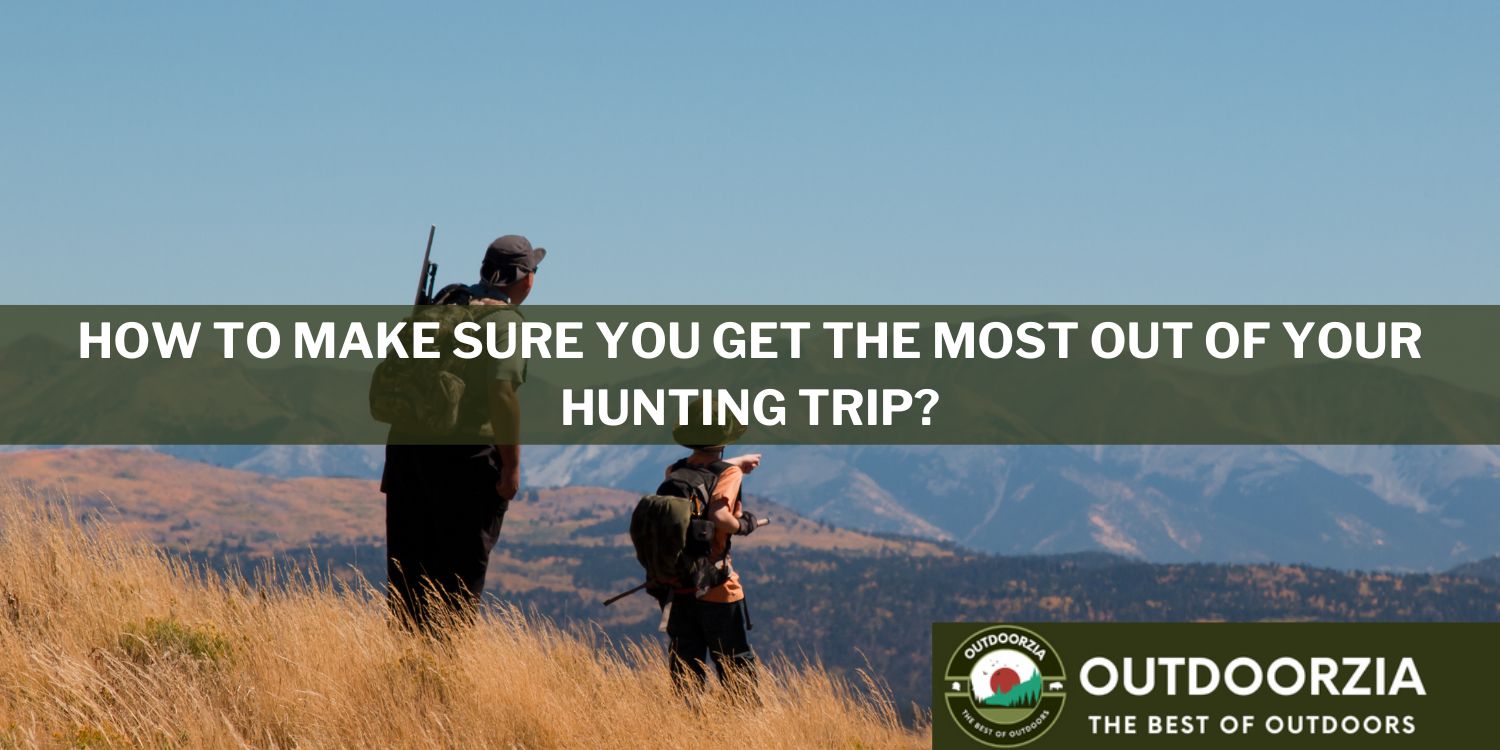
Guides and outfitters enhance your hunt in several ways. Guides bring expert knowledge of the local ecosystem, animal behavior, and hunting techniques, increasing your chances of success. They provide guidance, instruction, and safety protocols. This ensures a smooth and enjoyable hunt. Outfitters offer convenient logistics, access to prime hunting areas, and tailored services which save you time and effort. They handle accommodations, transportation, and equipment, allowing you to focus on the hunt itself while benefiting from their expertise and resources. Together, guides and outfitters optimize your hunt, maximizing your opportunities for a memorable adventure.
While there are numerous advantages to using guides and outfitters for your hunt, there can be potential disadvantages. One disadvantage is the additional cost associated with their services. This often will make hunting trips more expensive. Additionally, relying on guides and outfitters may limit your flexibility. This can take away from your freedom to explore and hunt independently. Lastly, the experience may feel less personal or authentic compared to planning and embarking on a hunt by yourself. However, these potential disadvantages are down to individual perception and are largely based on personal preferences and objectives.
Planning a hunting trip involves careful consideration and preparation. From researching the location, it's hunting traditions and game species. Through to selecting the right time of year and making essential arrangements. Effective planning is key to a well-executed hunting trip.
Carefully planning a hunting trip is vital to ensure the safety and well-being of participants. It allows you to better deal with any unpredictable situations which may arise in natural environments. Proper planning also enhances the chances of a fruitful hunt by optimizing strategies based on terrain and wildlife patterns. Another benefit of meticulous preparation is to be in compliance with local hunting laws and to ensure you follow ethical hunting practices.
Researching hunting locations and game animals involves gathering information from various sources. Online resources, hunting forums, and state wildlife management agencies provide valuable insights. You will be able to find out information regarding hunting regulations, public lands, and the available hunting opportunities. Another excellent way to gather information is to reaching out to local hunters and outfitters. They can offer firsthand knowledge relating to hunting areas and game species behavior.
Selecting the right time for your hunting trip requires consideration of factors such as hunting seasons, weather patterns, and game behavior. Understanding the breeding, migration, or feeding patterns of your target game species can help determine the optimal time for a successful hunt. Consulting hunting regulations, local experts, and outfitters can help provide guidance on the best times of year to organise your trip.
Deciding on accommodation for your hunting trip depends on factors such as proximity to hunting areas, amenities required, and personal preferences. Options can range from hotels or lodges near hunting grounds to campsites or remote cabins. Consider the distance from your preferred hunting locations, availability of necessary facilities, and the level of comfort desired when making accommodation decisions.
Choosing appropriate clothing for a hunting trip involves considering the climate, terrain, and specific hunting conditions you will encounter. Layering clothing is often recommended to adapt to changing weather and activity levels. Opt for camouflage patterns which blend with the natural surroundings. It is recommended to consider clothing materials which provide comfort, insulation, and moisture-wicking properties.
Heading out for a hunting trip requires careful preparation to ensure a safe and successful outing. This comprehensive checklist, ordered by importance, is designed to assist both seasoned and novice hunters to ensure they have everything necessary. From essential paperwork to specific gear, this list will guide you in packing for your next hunting adventure.
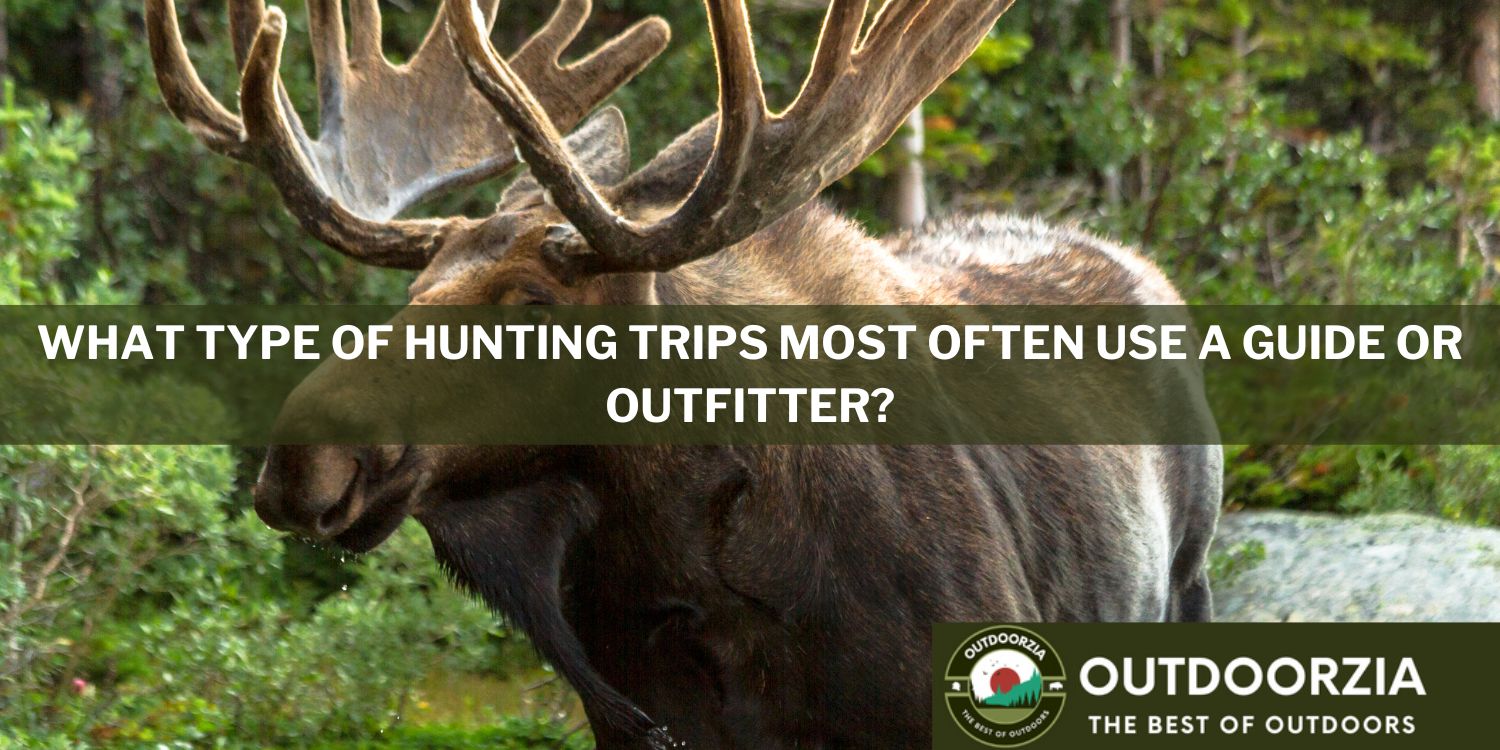
To ensure you get the most out of your hunting trip, proper preparation is crucial. This includes being physically and mentally prepared. Understanding local hunting regulations. And taking the necessary precautions to ensure your hunting trip is as safe as possible.
Physical and mental preparation is vital for a successful hunting trip. Before your hunting trip you should make sure you are engaging in regular physical exercise. This will improve your endurance, strength, and mobility. This will allow you to be in shape to handle the physical demands of hunting. The intensity of your exercise regime will depend on the type of hunt you are embarking on. Mental preparation is also key. This involves practicing patience, focus, and being conscious of the need to be resilient should you encounter any unexpected situations or challenges which may arise during the hunt.
Learning the local hunting regulations is essential. Reviewing hunting regulations specific to the area you plan to hunt in helps you understand bag limits, licensing requirements, season dates, and any special rules or restrictions. Additionally, you should familiarize yourself with hunting ethics and practices. This includes responsible game harvesting, respecting private property rights, and following ethical shot placement.
Prior to your hunting trip safety should be taken seriously. Prioritizing safety measures is crucial to prevent accidents and ensure a safe hunting trip. Always handle firearms or archery equipment with care. You should know proper gun safety rules and be familiar with the specific mechanisms of your weapon. You should prepare the appropriate safety gear such as blaze orange clothing to enhance visibility. And know how to practice safe hunting techniques. This includes positively identifying targets and being aware of the location of other hunters in your group. Prior to your hunting trip you should inform others of your hunting plans, carry a communication device, and have a basic understanding of first aid to handle emergencies should they occur.
The hunting trips which most often use a guide or outfitter are those which target big game. Big game covers species such as deer, elk, moose and bear. Big game hunting requires specialized knowledge of; the location, the behavior of the game, and hunting techniques which have yielded the most success in the past. This means for big game hunting the expertise and services provided by guides and outfitters is invaluable in increasing the chances of a successful hunt.
Yes, outfitters and guides are often used for upland and waterfowl hunting to enhance the experience and increase success rates. However, outfitters or guides are used more often for big game hunting. This is especially true in regions with elusive or challenging-to-hunt species. This is not only to increase the chances of success but to ensure safety. Overall, upland and waterfowl hunters do make use of guides but many hunters prefer more independent and mobile approaches.
States such as Colorado, Montana, Wyoming, Alaska, and Texas are known for their robust outfitter and guide services. They cater to hunters seeking a variety of game species and are able to give access to expansive hunting areas. Hunting outfitters and guides can be found in states with abundant wildlife populations, diverse hunting opportunities, and sought-after game. They are most commonly sought after for big game hunting.
In the US, a guided hunt would be most beneficial in states such as Alaska, Montana, Wyoming, and Colorado. These states have vast wilderness areas and challenging terrains. They are also home to big game species. Here hunting elk, mountain goats, and bears is often enhanced by employing a guide. The expertise of local guides can also be beneficial in states like New Mexico or Arizona with limited access to prime hunting lands or stringent regulations. The guide's local knowledge, experience, and resources can be invaluable in navigating these terrains and optimizing the chances of a successful hunt.
Globally outfitters or guides are most often used in Canada, South Africa, Argentina, New Zealand, and Australia. These countries attract hunters from around the world who rely on the expertise of outfitters and guides to navigate unfamiliar environments. Hunting outfitters or guides are most often used in regions known for their rich biodiversity, extensive hunting opportunities, and unique game species.
Globally a guided hunt would be most beneficial in destinations such as Southern Africa and Yukon, Canada. A guided hunt is most beneficial in countries or regions renowned for diverse wildlife, challenging terrain, and specialized hunting experiences. Both of these destinations match this criteria. Southern Africa is home to iconic Big Five game species and possesses vast challenging landscapes. The Yukon in Canada, is known for its remote wilderness and abundant game animals. Here you can participate in Yukon Moose, Dall Sheep, Mountain Caribou, bears and bison hunting. Both of these destinations offer unique opportunities where a knowledgeable guide can enhance the safety success and enjoyment of the hunt.
Yes, the use of a hunting guide or outfitter can significantly improve safety. Guides and outfitters are well-versed in safety protocols, possess first aid training, and have experience navigating potentially hazardous hunting areas. This reduces the risks of accidents, injuries, or getting lost in unfamiliar terrain.